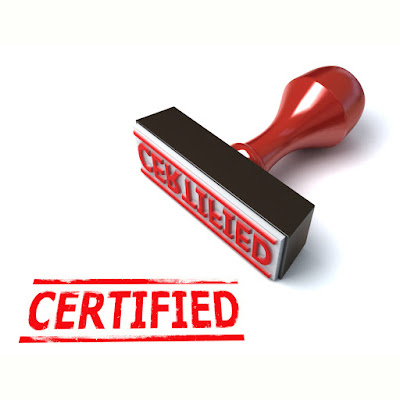PAPTI ISO CERTIFICATION AND HOW IT WORKS
 |
| Image Source: http://realcedar.com/ |
We see it on advertisements on television, billboards, newspaper, and magazines and we hear it on the radio. I think most of us have encountered it at least once before and it made us wonder what it really means. Companies often quote in their advertisements that they are an ISO certified company like PAPTI but in most cases the audience who hears about it only knows so little or nothing about it. For the majority of its audience, it is just a complex, professional sounding acronym that is used to strengthen the image of the company. But what really is an ISO certification? How do you earn one and how can one become an ISO certified company?
ISO Certified Company
To start off, ISO is an international, non-government, independent organization which brings together experts to share knowledge and develop voluntary, consensus-based, market relevant market standards that supports innovation and provides solutions to global challenges. As of the moment, there are 162 national standard bodies that are members of ISO and its central secretariat is based on Geneva, Switzerland.[1] While it is arguable that standards can be a bit subjective at times, ISO makes sure that there are world-class and consistent specifications for products, services, and systems to ensure quality, safety, and efficiency. For business, these standards serve as strategic tools that reduce costs by minimizing waste and errors, and increasing productivity. They help companies to access new markets, level the playing field for developing countries and facilitate free and fair global trade. [2] And in general, having your company ISO certified puts your company on the lead with those who are not certified.
What people need to understand is the key principles that ISO uses in standard development. This includes the response of the ISO standard to a need in the market, its use for global exportation; its development through a multi-stakeholder process; and its consensuses.
ISO follows a set of complex guidelines to any companies that send applications. To name a few, the ISO 9000 is a standard for quality, ISO 1400 is for environmental management, ISO 22000 is for food safety management, while ISO 50001 is for energy management. A company seeking for a certification needs to be careful in choosing the right category of certification so it can highlight the field that matters most for their company. And to meet the demanding market, ISO standards are constantly updated and improved to cover important areas.
It is also important to take note that it is not the ISO that conducts the certification or issues the certification; they merely develop the standards that are used for the certification. It is necessary to seek an external certification body to conduct the certification. This external certification bodies should be accredited and should use CASCO Standards.
This is just the basic principles on how a company gets an ISO certification. So the next time you hear a company is ISO certified, you will now understand the weight and bearing of these professional sounding group of letters.


HI, Thank you very much for good and professional presentation. keep it up.
TumugonBurahinISO 22000 Philippines